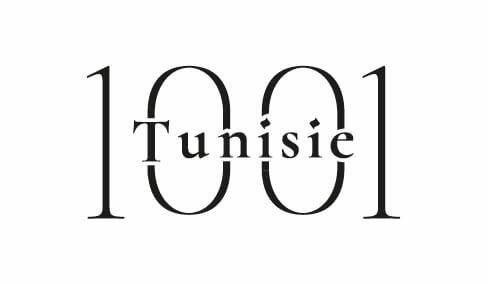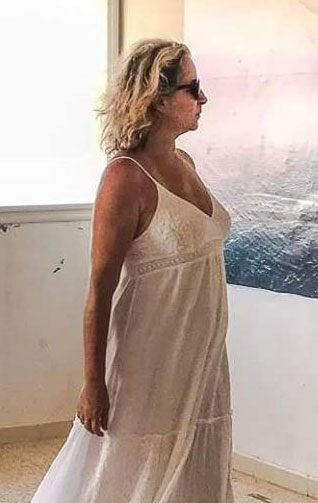
“You always wonder if I am not afraid to live so close to the Algerian border. In fact, the border does not exist. ” To justify herself, Gisela likes to tell this story that she lived with her husband, who died in 2004: “We were walking in the mountains and at one point we did not know if we were in Tunisia or Algeria. We met a little boy and he was asked the question. He replied: I too do not know but I am Algerian and I am going to school to Ghardimaou! It’s real united Maghreb! “She laughed in the Tunisian dialect.
The story happened in the early 1970s, when Gisela had just settled in Tunisia with her husband. “Boulehia” as they called him in the area, so was an agricultural engineer and had a contract with the National Agricultural Research Institute of Tunis to conduct a project on irrigation in the upper valley of the Medjerda.
“The village where I live is called El Baraket. It’s a place where things tend to proliferate “if she likes to say. Perched on a hill, Gisela’s farm houses dogs of the finest shape, bastards, she said, but with blood in the veins sloughi. Just a few years ago, a friend of Meknassi offered a sloughi German couple. “Phenomenon Baraket” forces the first dog gave many descendants of purebred and others of mixed blood. “The Club fauna and flora of the Mediterranean conducted a census throughout the country, there is not a single sloughi in Tunisia that is not coming from our livestock.” She said local people have virtually all disappeared, causing a problem of inbreeding. Currently, Gisela has only two female Sloughis. “I lost almost all my strength because of leishmaniasis. Another disease, parvovirus, killed every last reach. ”
The South thoroughbred
While dogs lounging in the shade of a palm tree, horses, protected by an enclosure, gather in a circle as if holding a meeting. “These are Arabian horses, a South line, which tends to disappear in Tunisia.” Originally, these horses were traveling with nomads and accompanied flocks during transhumance. They were used among others for plowing the fields. Thin legs, solid unshod hoofs , they, according to Gisela, are the distinction of having an “extraordinary” character and a long service life. Most often, the horses live between 28 and 33 years.
Gisela’s mares let you caress them. One of two fillies does not leave the hostess, follows her and hands her head. “They are not in their best form,” says Gisela bitterly. For lack of means, the horses are fed with straw. Despite the difficulties, Gisela fights to try to save threatened thoroughbred disappearance.
Horse breeding in Baraket has also begun with a gift, a black colt offered by Bashir , a friend of Beja. “This horse brought me a lot. In 15 years I have traveled with him over 2,000 km per year. ”
In autumn 1972 Gisela had a serious car accident with her husband. “I was wounded in the foot, it made gangrene. I went to see Dr. Azzedine Annabi. To cure my foot, he asked me to put myself in the sun, watching the horses and Sloughis and spread honey on the infected wound. Honey healed me and the animals boosted my morale. ” One day, Gisela, who was still suffering from her foot, fainted in the middle of the field. The little black horse who followed her everywhere behaved like crazy until the husband of Gisela follow him and found his wife lying on the ground. “I had several amazing stories like that with animals.”
Equitherapy
Farm horses have a gentle nature. Gisela has always had the idea to make them available to people with special needs.
An American volunteer of Peace Corps, specializing in working with autism, encouraged her to take the plunge. “She said my horses were all suitable for horse therapy. (…) One day, educators came with a group of disabled people. I was still talking with them for how to disappear when I saw my horse herd. Disabled children were on it! My apprentices had put them on the backs of horses and had gone with them. I feared the worst but in the end they all came singing. Everyone was happy and we kept this business for several years, until the fall of Ben Ali. The director of the Association of Parents and Friends of Disabled Tunisians changed in the meantime, and educators are not as motivated to resume the activity. ”
For Gisela, one of the most vivid memories experienced with horses: A mom came with her autistic child. “The boy did not speak. He was 4 or 5 years old. His mother brought him back to her on the horse. They gymnastic exercises while walking the horse is called the treatment started. When the tour was over, the little began to stammer and to greet everyone. His mother had tears in her eyes, it was the first time her son was reacting that way. ”
In 11 months, Gisela lost 14 horses, but still do not know what hit them badly. She suspects babesiosis, a disease caused by ticks cows. “I went down to Tunis to make contact with the veterinary school, who is afraid to come because it believes in Ghardimaou is civil war! There is a veterinary service in the region but veterinarians spend their time in the mountains to treat rabies. ”
In the farm in El Baraket, there are still 14 horses. Gizela receives no support from the Ministry of Agriculture. Those who want to help, offer to leave Ghardimaou. “Everybody wants me down but I refuse to go to Tunis. I have roots here. 40 years is more than half of my life. ”
SD
Source: The Press
{mainvote}


 َAbonnez-vous
َAbonnez-vous

